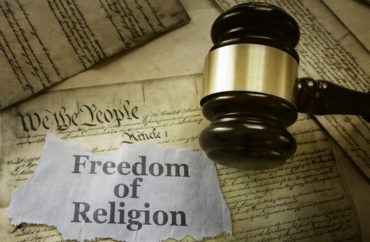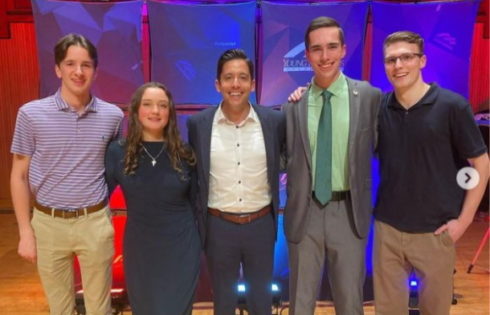
Light touch approach only makes sense if ‘the crisis is of finite — and limited — duration’
Courts are “perhaps the only institution” in America “that is in any structural position to push back against potential overreaching by the local, state, or federal political branches” during the COVID-19 outbreak.
So say law professors at American University and the University of Texas in a Harvard Law Review blog post on “the central (and long-running) normative debate over emergency powers” in legal jurisprudence.
Public health law specialist Lindsay Wiley and national security law specialist Steve Vladeck preview their argument against the “suspension” approach to judicial review during “times of emergency” in a forthcoming Harvard Law Review Forum essay.
They note that New Hampshire has defended Gov. Christopher Sununu’s ban on “gatherings” by claiming courts have no oversight of executive emergency powers “in the face of a rapidly evolving health crisis” – unless the court determines the actions “were not taken in good faith” or the executive had “no factual basis” to believe the restriction was necessary. Sadly, a trial court agreed.
In upholding Texas’s right to count abortion as a “non-essential” procedure that can be postponed under emergency powers, the 5th U.S. Circuit Court of Appeals suggested it would let the government suspend even explicit First Amendment rights, including assembly and worship.
The problem, according to Wiley and Vladeck, is that the “suspension” approach assumes that “the crisis is of finite — and limited — duration”:
But in a public health crisis like the coronavirus pandemic, when the restrictions are designed to slow the progress of the epidemic (and there might therefore be a relationship between the efficacy of the restrictions and the duration for which they will be needed), the stopgaps are potentially indefinite. Allowing for the suspension of more rigorous judicial review in such circumstances therefore risks allowing the exception to swallow the rule.
It’s also important to maintain “ordinary” judicial review during a crisis so courts can determine if the government’s compelling interests in public health really require extreme measures, or if they can be “reasonably vindicated through less restrictive measures that are equally available to the government at the same time,” they write.
As seems obvious by Michigan Gov. Gretchen’s Whitmer’s confusing executive order that led a Walmart to ban the sale of baby car seats, courts also “force the government to do its homework” by explaining how its actions actually further its stated purposes:
In the process, a robust judicial role may be indispensable not only in minimizing the loss of our liberties, but also in facilitating the development of a sustainable, long-term response to this crisis — and a body of law to guide public health legal preparedness for the next one.
Indeed, we’ll need the courts to remain eagle-eyed over the parade of restrictions on civil liberties that elected leaders are likely to implement for at least a year, as a COVID-19 vaccine is developed, Wiley and Vladeck say.
(To learn more about the threats issued against a pregnant woman for tweeting about the roped-off baby car seats in Michigan, read coverage by Detroit News columnist Ingrid Jacques.)
MORE: Stanford Med professor argues shutdowns won’t stop coronavirus
IMAGE: zimmytws/Shutterstock
Like The College Fix on Facebook / Follow us on Twitter







Please join the conversation about our stories on Facebook, Twitter, Instagram, Reddit, MeWe, Rumble, Gab, Minds and Gettr.